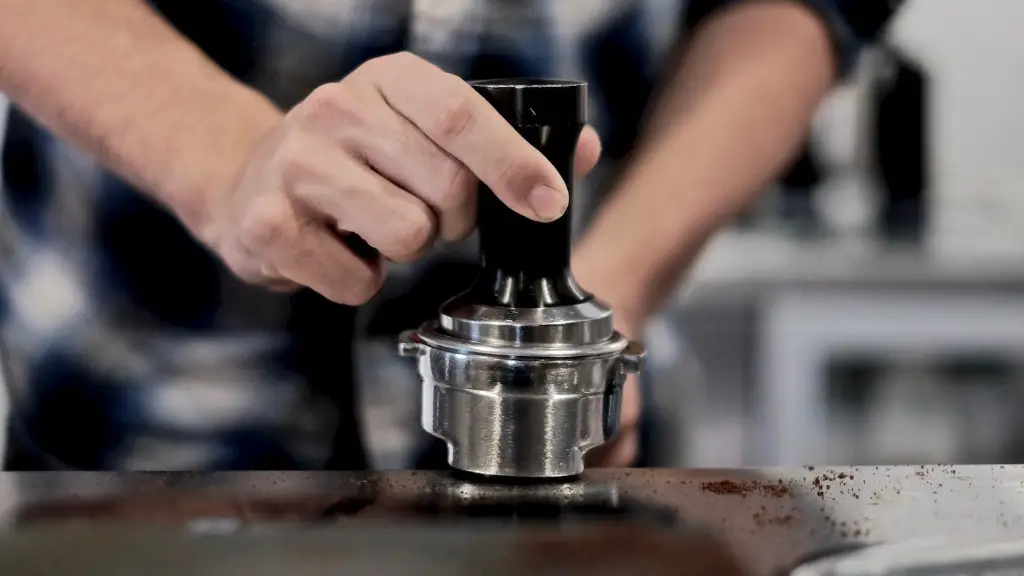Drinking coffee can be a great way to kick-start your day, but what is the best time to drink it? There is no simple answer to this question, as physiology and lifestyle can both play a role in when it is best for you to consume coffee. In general, coffee consumption should be individualised to every person’s lifestyle and needs.
Caffeine, one of the main active ingredients in coffee, has been proven to be beneficial when used appropriately. When consumed 30 minutes after waking up, it can give you a mental and physical boost that can last up to 10 hours. According to recent research, the peak performance of caffeine consumption was achieved when it was consumed 45 minutes up to an hour after waking up. This peak was measured in both motor performance and alertness. This suggests that coffee might be a beneficial beverage when consumed at the right time.
The best time for you to enjoy a cup of coffee depends on when you wake up. If you are an early bird and you wake up before 6 am, then drinking coffee first thing in the morning is a great choice. On the other hand, if you are a late riser and you wake up after 7 am, waiting 45 minutes after waking up will probably be the best time for you to grab a cup of joe. However, there are no hard and fast rules and you should experiment to find out when coffee works best for you.
Moreover, other factors, such as food intake and caffeine tolerance, should be taken into account. Eating soon after waking up has been proven to interfere with the effects of caffeine. Therefore, if you have eaten something right after waking up, it is better to wait a bit longer before drinking coffee in order to get the maximum benefit of the caffeine and other active ingredients in the beverage. In addition, depending on your own individual caffeine tolerance, it might be better for you to wait longer than an hour or even to cut down on the amount of coffee to ensure that you are not getting too much caffeine.
In conclusion, drinking coffee at the right time can be beneficial for you. It is important to take into account your individual lifestyle, tolerance, and eating habits when deciding when to drink coffee. Experiencing and testing different periods of time and amounts of caffeine can help you find the best combination for your own personal needs.
Benefits Of Drinking Coffee
Drinking coffee can provide several advantages. For starters, the caffeine in coffee can increase alertness, give you a boost of energy, and raise metabolism. Additionally, coffee can help you stay focused, especially when taken 45 minutes after waking up. Moreover, some studies suggest that regular coffee consumption can decrease the risk of type 2 diabetes, cancers, as well as Parkinson’s and Alzheimer’s diseases.
Another potential advantage of drinking coffee is that it can help you temporarily reduce feelings of stress and anxiety. This benefit is related to the presence of antioxidants, which can help reduce oxidative stress, as well as blockage of the adenosine receptors in the brain – receptors that can cause drowsiness.
However, drinking too much coffee can be detrimental to your health. Therefore, it is important to keep your coffee consumption in moderation and be mindful of how much you are drinking.
What Coffee To Choose
When choosing what type of coffee to drink, there are several factors to consider. Black coffee and decaffeinated coffee are healthier options, as they typically contain fewer calories and additives than other varieties. Additionally, there is something to be said for organic certified coffee. Organic coffee is grown without the use of synthetic fertilisers or pesticides, which can be harmful to the environment. Those who are looking for specific health benefits might consider drinking organic coffee.
Moreover, it is important to keep in mind that different coffee brands have different levels of caffeine. Therefore, it is important to research the type of coffee you are drinking and ensure that you are aware of its caffeine content.
Adverse Effects of Coffee
Drinking too much coffee can have detrimental effects on one’s health. Caffeine has been linked to an increased heart rate and elevated blood pressure. Moreover, it can also lead to insomnia, restlessness, and anxiety. Additionally, it has been suggested that coffee can lead to dehydration – a risk that can be easily avoided by drinking plenty of water throughout the day.
Those who are sensitive to caffeine might experience greater adverse effects. Symptoms can include headaches, dizziness, nausea, and irritability. It is important to note that the effects of caffeine can differ from person to person, depending on their genetic makeup, lifestyle, and individual physiology. Therefore, it is important to know what types of coffee are suitable for you and when is the optimal time for you to drink it.
How To Make Coffee More Enjoyable
Aside from knowing which type of coffee to choose and when to drink it, there are several ways to make coffee more enjoyable. For instance, adding a splash of milk or a tablespoon of cream can make your cup of coffee more delicious. Additionally, adding spices like cinnamon, nutmeg, and cardamom can lend a more mellow, comforting flavour to the beverage. Moreover, preparing your coffee with different filtering methods can also have an effect on its taste. French press, espresso, and drip coffee makers are all popular choices that can produce different flavours and levels of caffeine.
Experimenting with different types of coffee and brewing methods is a great way to find out what tastes best for you. There are also several coffee shops around the world where you can sample coffee from different parts of the world and discover unique flavours.
Healthier Alternatives To Coffee
If coffee is not for you, there are several healthier alternatives that can still help you get the energy you need to start your day. Tea, for instance, can be a great way to boost energy and reduce stress. Depending on the type of tea, it can also provide you with several added health benefits. Additionally, a few pieces of dark chocolate are a great way to get a shot of energy without the risk of drinking too much coffee. Kombucha, matcha, and green tea are also good alternatives to coffee.
Moreover, there are several natural supplements that can help you boost energy. Maca, ashwagandha, Rhodiola, and ginseng are some of the most common natural energy boosters that can help increase alertness, reduce stress, and improve cognitive performance.
In conclusion, it is important to find what works best for you when it comes to boosting energy. Depending on your lifestyle, physiology, and needs, different beverages and supplements will be better for you than others. Be sure to research and experiment to find the combination that is best for you.




